Ducati doubles up out back for 2025
A single-sided rear swingarm is one of the most bipolar pieces of bike chassis design. On the one hand, it’s found on some very basic designs: basic commuting mopeds and scooters.
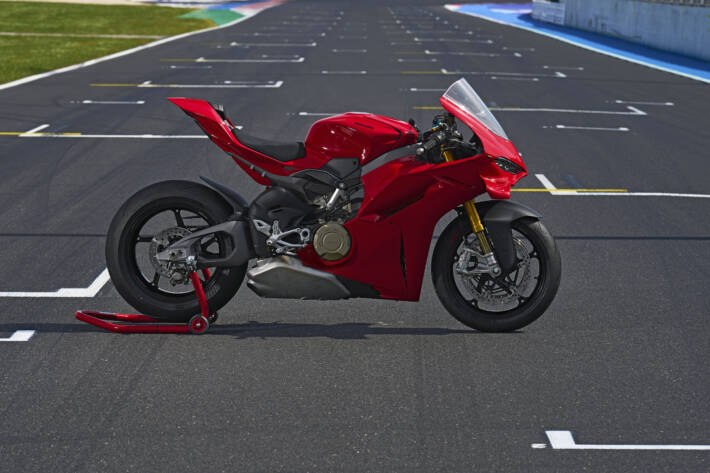
BMW has been using a single-sided shaft-drive arm since the 1980s on its Boxer twins and K-series bikes, with some very dull bikes in there (R65 Monolever anyone? No, us neither!)
But on the other hand, single-sided arms are also the height of motorbike chassis chic, thanks in part to their utility in endurance racing (there’s no rear wheel setup that’s quicker or easier to change in a pitstop).
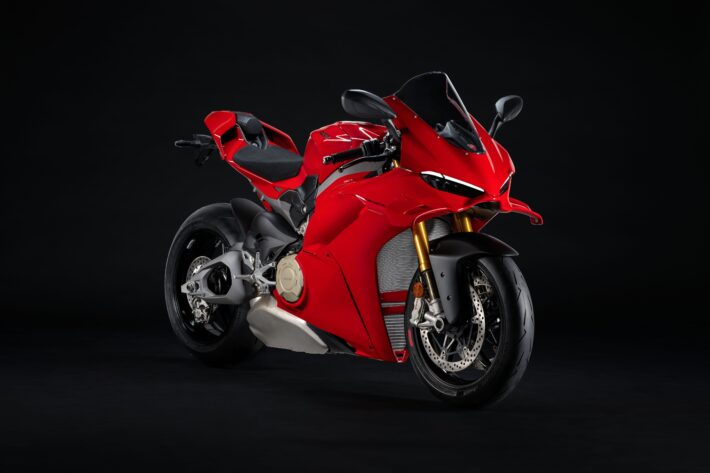
But it’s essentially a fashion item: no-one was taking a Honda NSR250R MC28 or a Triumph Sprint ST endurance racing, but both still got neat single-sided arms.
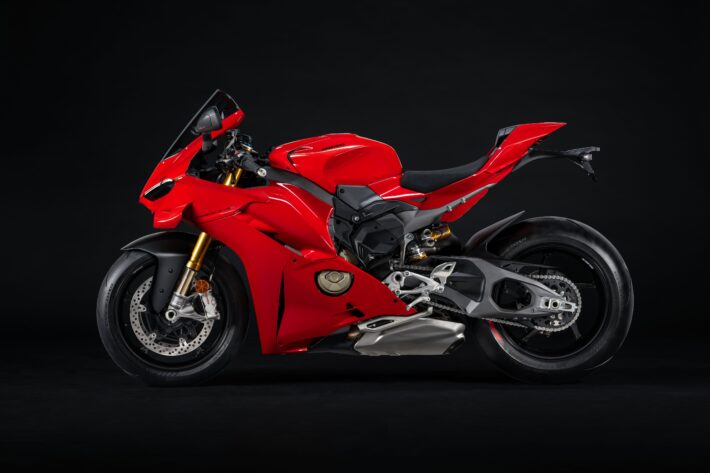
Ducati plumped for a single-sided arm for arguably its most beautiful and influential bike ever – the 1994 916 Superbike. The mono-arm gives a clean look to the back end, allows a clear view of the enormous rear wheel and tyre, and together with the underseat exhaust, emphasises the lightness and clarity of the design.
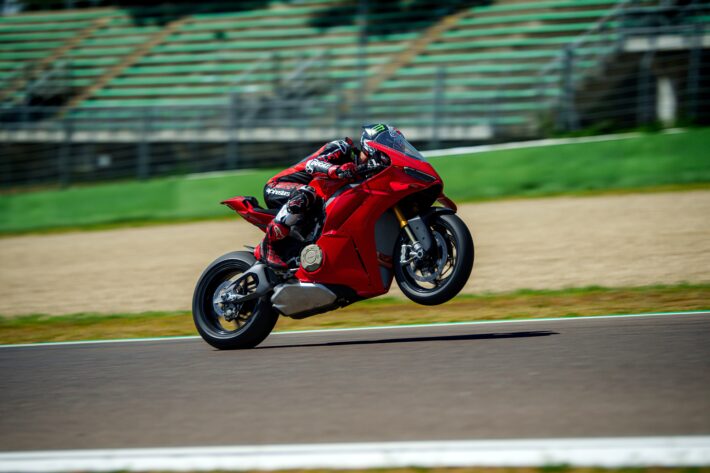
There are downsides to the setup though. It has to be bigger, stiffer and stronger than a comparable dual-sided arm to resist the torsional forces from the rear wheel drive, and the suspension movement. It’ll be heavier, trickier to design and harder to manufacture – and hence more expensive at the end of the day.
Ducati stuck with a single-sided arm through the 916-996-998 model family, before moving to a double-sided arm on the much-less-lovely 999 range.
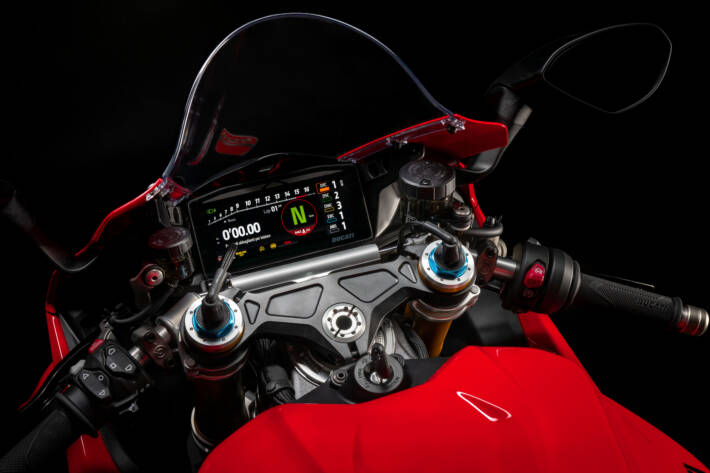
When the 999 was replaced, it was a single-sided chassis design that Ducati came up with again in the 1098 superbike.
And we’ve had saucy mono-arms ever since, on Ducati models as diverse as the Streetfighter, Multistrada, Diavel and 950 Supersport, through the rest of the Panigale V-twin range, and into the first few generations of the Panigale V4.
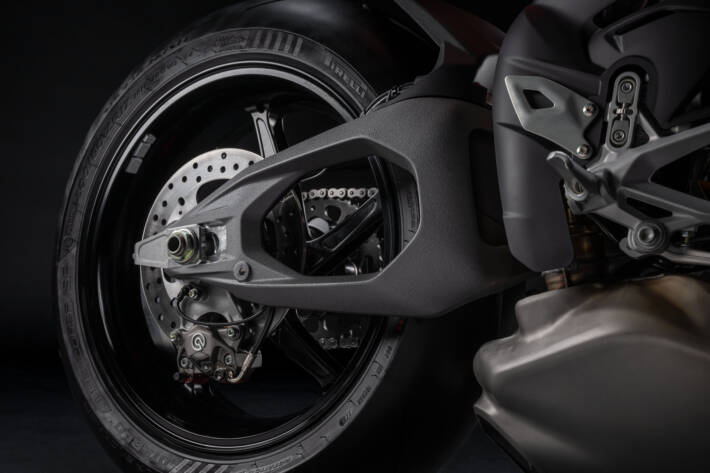
But that’s all gone now. The Bologna engineers, looking for ways to extract even more performance from their 1,103cc superbike, have sacrificed the stylistic advantages of the single-sider, in favour of a new dual-sided arm, albeit one with massive hollow sections, for a super-stiff, yet super-light construction.
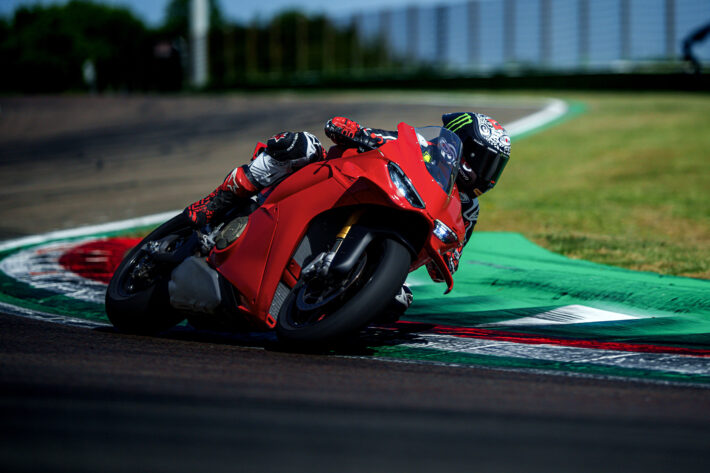
That, plus a new aerodynamic fairing design, including new wings, are the most obvious changes, but the new 2025 bike has a heap of mods all the way through the chassis, engine, and electronics packages.
The swingarm is called the Ducati Hollow Symmetrical Swingarm, and the firm claims it weighs 2.7kg less than the previous mono-arm, while giving even better handling performance. It’s also been designed to allow the same under-engine silencer setup as before.
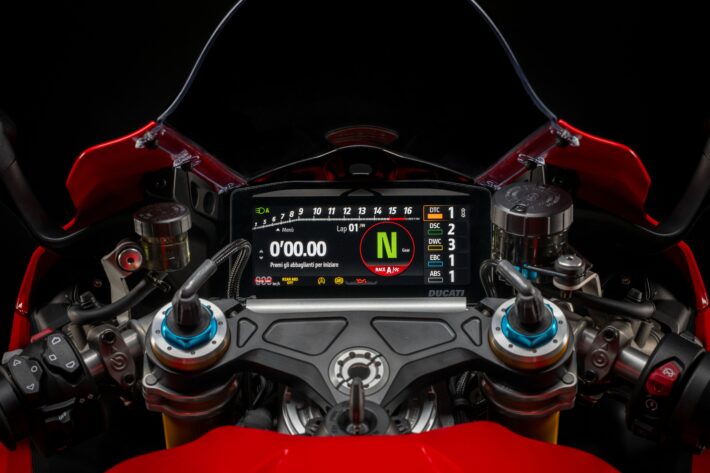
A new main frame is 0.73kg lighter, with optimised stiffness, and Ducati says the chassis now works even better at high lean angles, up to 60° (eek). Away from the frame and swingarm, new forged aluminium rims on the V4S save even more mass, weighing just 2.95kg front and 4.15kg rear, and the S model also gets the latest EC3.0 version of the Öhlins semi-active suspension package, with NPX fork and TTX rear shock.
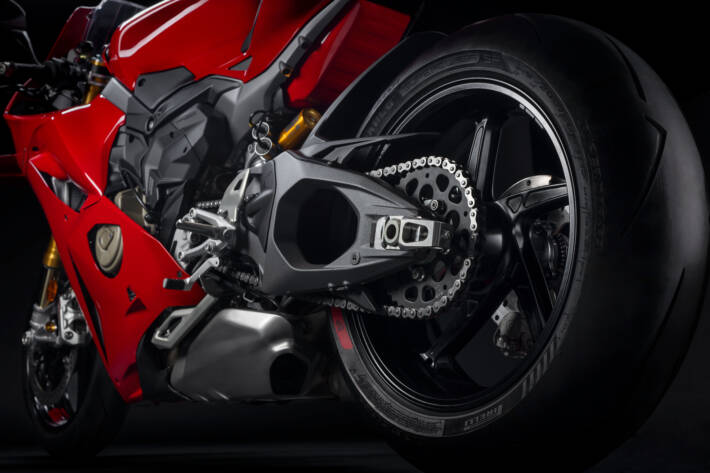
Finally, the 2025 Panigale V4 is the first in line for Brembo’s latest road superbike stoppers: the HyPure calipers, which are lighter, stiffer and more powerful than ever before. They also feature a new Bosch Race eCBS combined braking system that gives more track-biased ability.
The engine is now Euro 5+ compatible, a largely technical change which is more concerned with how engine emissions change over time (so that the bike is as clean at 30,000 miles as it is when new).
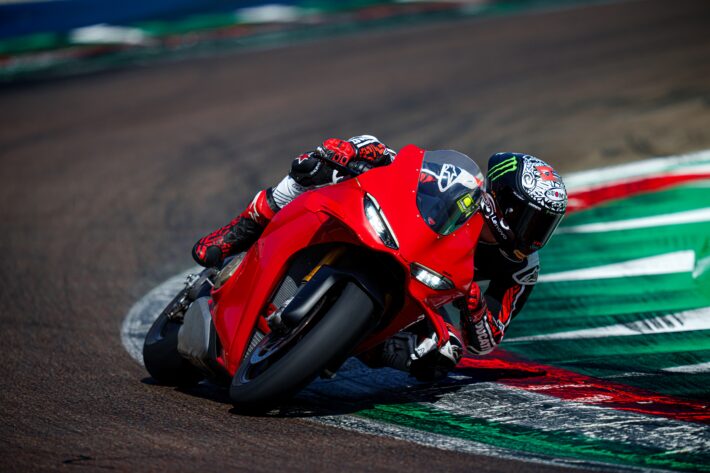
There’s a tiny power gain, up by 0.5bhp despite the tougher regs, and Ducati claims the power is even easier to use, thanks to changes like a broader range of movement on the variable-length intake trumpets, altered cam profile and lift, and an alternator and oil pump design lifted from the V4 R.
216bhp is still a lot of shove of course, and if you can spring for the Ducati Performance Akrapovic race pipe, you get a hefty 228bhp peak output…
The new bike will be in the shops before the end of the year, priced at £29,995 for the V4 S and £24,395 for the ‘base’ V4. More info: www.ducati.com
2025 Ducati Panigale V4 Tech Highlights
Panigale V4 S
- Desmosedici Stradale engine, 1,103 cc
- Maximum power of 216bhp@13,500 rpm (209bhp@12,750 rpm for the US market)
- Maximum torque of 12.3kgm@11,250 rpm (121.3Nm@11,250rpm for the US market)
- Kerb weight without fuel: 187kg
- “Front Frame” chassis
- 17 litre aluminium tank
- Ducati Electronic Suspension (DES) 3.0
- Öhlins NPX-30 fork with Öhlins Smart EC 3.0 control system
- Öhlins TTX 36 shock absorber with Öhlins Smart EC 3.0 control system
- Öhlins steering damper with Öhlins Smart EC 3.0 control system
- Forged aluminium wheels
- Lithium-ion battery
- Braking system with Brembo Hypure monobloc callipers
- Pirelli Diablo Supercorsa V4 tyres with 200/60 rear
- Wings with biplane configuration and integrated design
- Latest generation electronic package with 6-axis Inertial Measurement Unit (6D IMU): Race eCBS with cornering functionality; Ducati Traction Control (DTC) DVO; Ducati Slide Control (DSC); Ducati Wheelie Control (DWC) DVO; Ducati Power Launch (DPL) DVO; Ducati Quick Shift (DQS) 2.0; Engine Brake Control (EBC), Ducati Vehicle Observer (DVO)
o Buttons for quickly changing levels
o Massive new 6.9” full-TFT dashboard with 8:3 aspect ratio
o Riding modes (Race A, Race B, Sport, Road, Wet)
o Full-LED headlights with DRL and turn signals integrated into the headlight
o Single-seat configuration (passenger kit accessory)
o Ready for Ducati Data Logger (DDL) and Ducati Multimedia System (DMS)
o Ducati Red with Urban Grey frame, black rims and matt black front mudguard
Panigale V4
Same as the Panigale V4 S except:
- Kerb weight without fuel: 191 kg
- 43 mm Showa Big Piston Fork (BPF), fully adjustable
- Sachs rear monoshock, fully adjustable
- Sachs steering damper
- Five-spoke light alloy wheels
- Lead-acid battery
- Ducati Red with Urban Grey frame and black rims